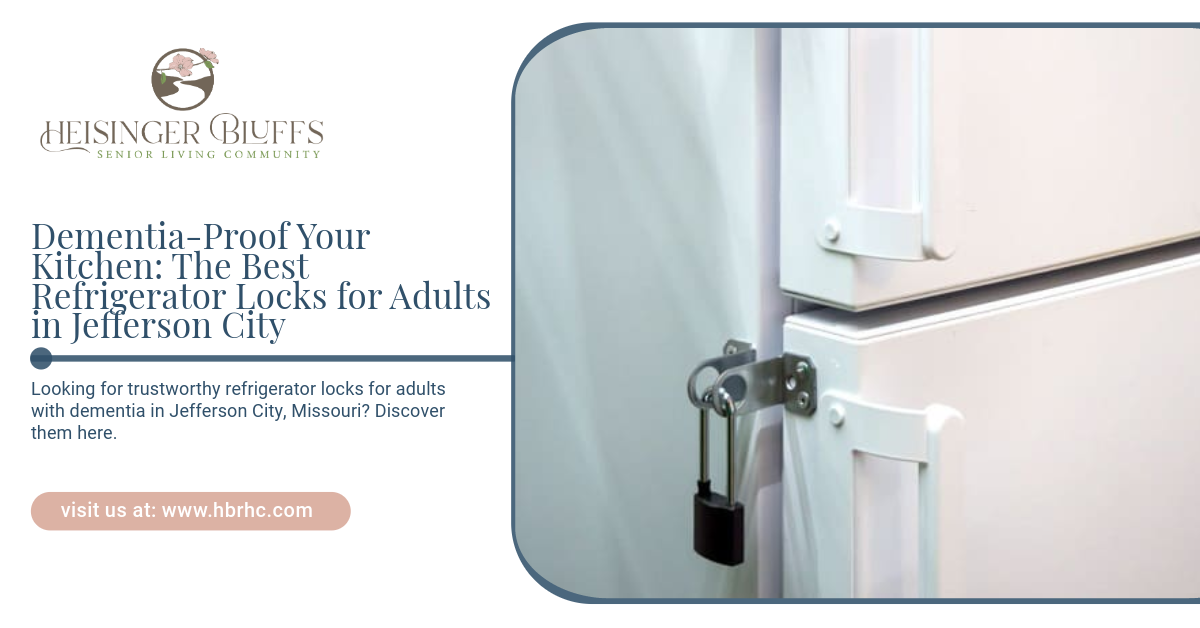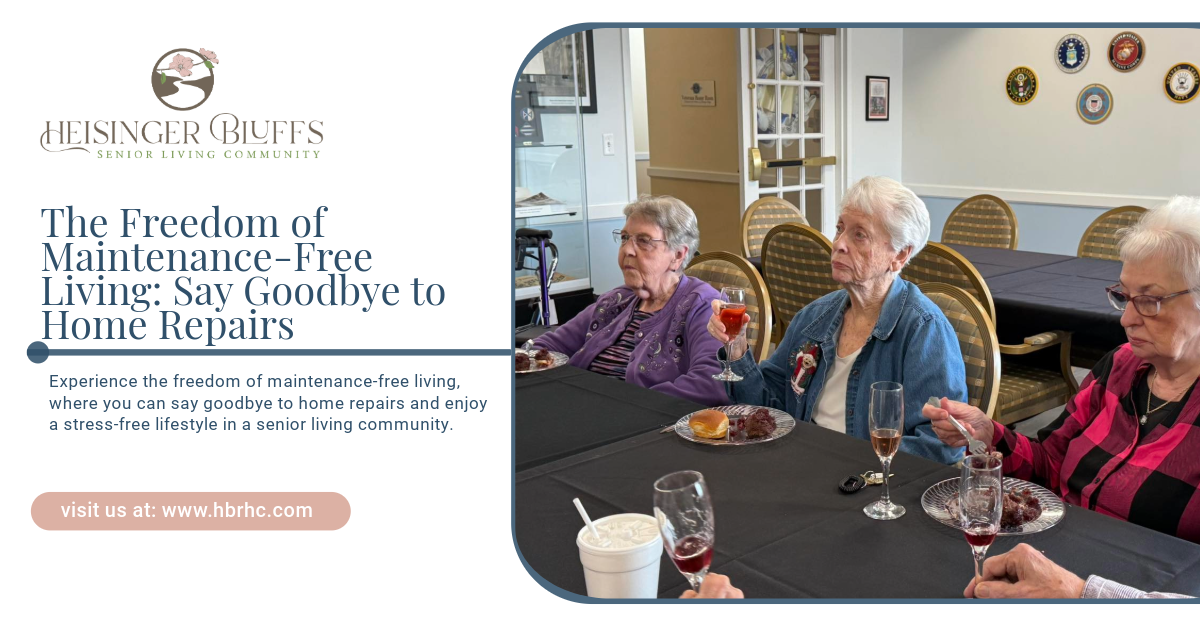Dementia-Proof Your Kitchen: The Best Refrigerator Locks for Adults in Jefferson City

Caring for someone with dementia involves taking steps to create a safe and supportive environment, especially in areas of the home where accidents can occur. The kitchen is often a focal point for daily activities, but it can also pose unique challenges for individuals with dementia. One significant concern is ensuring that dangerous or inappropriate items in the refrigerator are secure. This article explores the best refrigerator locks available in Jefferson City, helping you effectively dementia-proof your kitchen and promote safety for your loved ones.
Understanding Dementia and Its Impact on Daily Life
Dementia affects cognitive function, memory, and the ability to perform everyday tasks. As the condition progresses, individuals may struggle with decision-making, judgment, and recognizing potential hazards. This can lead to unsafe behaviors, especially in the kitchen, where items like medications, cleaning supplies, and even food may pose risks.
Common Challenges in the Kitchen
Individuals with dementia may face various challenges in the kitchen, including:
- Forgetfulness: Forgetting whether they have eaten or taken medication.
- Confusion: Mixing up items or using them inappropriately, such as attempting to eat spoiled food.
- Safety Concerns: Leaving the refrigerator door open, leading to food spoilage or excessive energy consumption.
By implementing safety measures like refrigerator locks, caregivers can help reduce these risks and create a more secure living environment.
Why Use Refrigerator Locks?
Refrigerator locks serve multiple purposes, including:
- Preventing Access to Dangerous Items: Locks can help keep medications, cleaning supplies, and potentially harmful foods out of reach.
- Encouraging Healthy Eating Habits: Limiting access to snacks or unhealthy foods can promote better dietary choices.
- Enhancing Safety: Locks can prevent accidents related to food spoilage or inappropriate food consumption.
Choosing the right refrigerator lock can significantly impact the safety and well-being of individuals living with dementia.
Types of Refrigerator Locks
When selecting a refrigerator lock, it’s essential to consider the specific needs of the individual and the design of your refrigerator. Here are some common types of refrigerator locks:
1. Sliding Locks
Sliding locks are simple to install and can fit most refrigerator doors. They typically use a sliding mechanism that secures the door shut.
- Pros: Easy to install, affordable, and compatible with various refrigerator styles.
- Cons: May not be as secure as other lock types, as they can sometimes be bypassed with enough force.
2. Padlocks with hasps
Padlocks with hasps involve installing a hasp (a type of fastener) on the refrigerator and securing it with a padlock.
- Pros: Highly secure and difficult to bypass; can be used on different refrigerator models.
- Cons: Requires drilling and may not be suitable for rental properties.
3. Magnetic Locks
Magnetic locks are childproof locks that use a magnet to hold the refrigerator door shut. They are often used for cabinets but can be adapted for refrigerators.
- Pros: Easy to install and remove, and visually unobtrusive.
- Cons: May not be as secure for individuals with advanced dementia who can figure out how to manipulate them.
4. Keyed Locks
Keyed locks provide a higher level of security. They require a key to unlock the refrigerator, making them suitable for more advanced stages of dementia.
- Pros: Very secure; can prevent access to the refrigerator entirely.
- Cons: Requires a key, which can be easily lost; installation can be complex.
5. Strap Locks
Strap locks use a strap that wraps around the refrigerator handles and secures with a buckle or latch. These are often adjustable to fit various sizes.
- Pros: Versatile and easy to adjust; does not require permanent installation.
- Cons: May not deter individuals determined to access the refrigerator.
Choosing the Right Refrigerator Lock
Selecting the best refrigerator lock for adults with dementia involves considering several factors:
1. Level of Security Needed
Assess the cognitive abilities of the individual. If they are likely to forget that the refrigerator is locked, a more secure option, like a keyed lock, may be necessary.
2. Ease of Use for Caregivers
Choose a lock that is easy for caregivers to operate. The lock should not require complicated steps to open, as this can become frustrating.
3. Compatibility with Your Refrigerator
Ensure that the lock you choose is compatible with the design of your refrigerator. Some locks may not fit specific models or styles.
4. Installation Requirements
Consider whether you want a permanent solution or something that can be easily removed. Some locks may require drilling or permanent alterations to the refrigerator.
5. Budget
Locks come in various price ranges, so it’s essential t
o choose one that fits your budget while still meeting your safety needs.
Recommended Refrigerator Locks for Dementia Patients
Here are some highly recommended refrigerator locks available in Jefferson City:
1. Safety 1st Magnetic Locking System
This magnetic locking system is designed for cabinets but can be adapted for refrigerators. It is easy to install and features a simple mechanism for caregivers to access while remaining secure against accidental openings.
2. Munchkin Xtraguard Dual Action Multi Use Lock
This dual-action lock is highly versatile, allowing it to be used on refrigerators and other household items. It has a strong adhesive backing, making it easy to install without tools.
3. Adoric Sliding Lock
The Adoric Sliding Lock is a simple yet effective solution. It can be easily adjusted to fit various refrigerator models and provides adequate security without complex installation.
4. Childproof Kitchen Cabinet Locks by Wittle
These locks are designed for cabinets but can work for refrigerators as well. They are easy to use for caregivers while remaining difficult for those with cognitive impairments.
5. Kangaroo’s Keyed Refrigerator Lock
For those needing maximum security, Kangaroo’s Keyed Refrigerator Lock provides a high level of safety. Installation may require drilling, but it offers peace of mind that the refrigerator contents are secure.
Other Kitchen Safety Tips for Dementia Care
In addition to using refrigerator locks, consider the following kitchen safety tips to further dementia-proof your kitchen:
1. Label Items Clearly
Use large, easy-to-read labels on food items and containers to help individuals with dementia identify what is safe and appropriate to eat.
2. Remove Hazardous Items
Store medications, cleaning supplies, and sharp objects in locked cabinets or out of reach to prevent accidents.
3. Simplify Meal Preparation
Keep meal preparation simple by providing pre-prepared meals or easy-to-assemble ingredients. This reduces confusion and frustration during cooking.
4. Maintain a Routine
Establishing a consistent routine can help individuals with dementia feel more secure and reduce anxiety around food and mealtimes.
5. Supervise Meal Times
Whenever possible, supervise meals to ensure safety and to assist with any challenges the individual may face.
Conclusion
Dementia-proofing your kitchen with effective refrigerator locks is an essential step in ensuring the safety and well-being of adults with dementia in Jefferson City. By selecting the right lock and implementing additional safety measures, caregivers can create a secure environment that promotes independence while reducing the risk of accidents.
At Heisinger Bluffs, we understand the challenges of dementia care and are committed to providing the support and resources needed to enhance the quality of life for seniors and their families.











